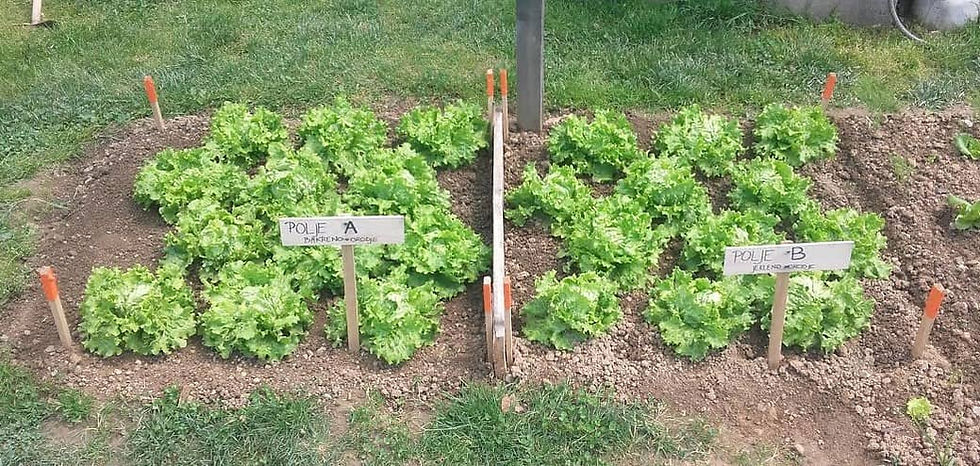Is Copper Dangerous for Your Garden?
- ostijarej
- Jul 17, 2025
- 2 min read
Copper has been used for centuries—not just in electricity and construction, but also in gardening. And yet, despite its long tradition, some gardeners still wonder: can copper be harmful to the garden?
Let’s clear up some common concerns and explain why using copper tools in the garden is not only safe but can actually be beneficial.
Acid Rain and Copper – Cause for Concern?
In populated or industrial areas, rain is often slightly more acidic due to air pollution. When this rain comes into contact with copper surfaces—such as roofs or gutters—it can lead to the formation of certain copper compounds. In high concentrations, these compounds are indeed not safe to consume. That's why it's long been advised not to use rainwater from copper roofs to water your garden, especially not for edible crops.
Why? Roofs are often visited by birds, and their droppings are very acidic. When acidic water runs over copper, it can break down the protective layer on the surface and wash harmful residues into the runoff. Water from such surfaces is simply not suitable for irrigation or consumption.
But What About Copper Tools?
The situation is very different when it comes to garden tools.
When copper is used in tools—like trowels, hoes, or seeders—it comes into contact mainly with soil and air. Over time, a natural patina forms on the surface—a greenish layer of oxidation that protects the metal from further corrosion. This layer (which is often admired on old statues and monuments) is harmless and even desirable, as it means the copper has stabilized.
It’s also important to understand that during regular use of copper tools, only very small amounts of copper ions are released into the soil. These trace amounts are not harmful—in fact, they can have a positive effect on your garden. They act as a natural antifungal and antibacterial agent, help suppress plant diseases, and support a healthy microbial balance in the soil.
What If Verdigris Appears?
Verdigris is a toxic form of copper salt that can form if copper is exposed to prolonged moisture and acidity in a closed or poorly ventilated environment. If verdigris ever appears on your tools, don’t worry—it’s very easy to remove using ordinary white vinegar. Just wipe the surface, and the tool is clean and safe for use again.
So—Is Copper Dangerous for Your Garden?
No. When used correctly and with a basic understanding of the material, copper tools are safe, effective, and even beneficial for your garden. Their natural properties support plant health, and the tools themselves are long-lasting, rust-free, and gain character with age.
Copper is not something to fear—it’s a natural ally in the garden, offering subtle support to plants and soil alike.




Comments